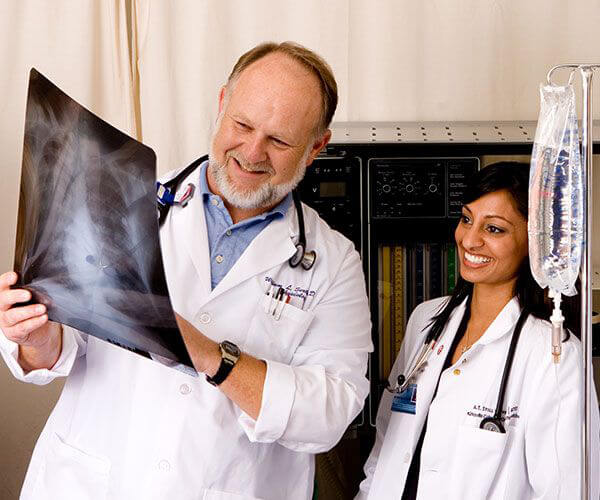Whole person healthcare
Osteopathic medicine is centered in whole person healthcare, an integrated approach to treating each patient holistically.
Osteopathic medicine is a unique form of American medical care that was developed in 1874 by Andrew Taylor Still, DO, founder and namesake of A.T. Still University (ATSU), the world’s first osteopathic medical school. Dissatisfied with 19th century healthcare, Dr. Still founded a philosophy of medicine based on ideas that date back to Hippocrates, the Father of Medicine, and which focuses on the unity of the body. Dr. Still pioneered the concept of wellness and identified the musculoskeletal system as a key element of health.
At ATSU, students and faculty are part of a distinguished heritage of humanistic healthcare based on an integrated approach that includes the body, mind, and spirit of each patient. All three elements work in tandem to provide a more thorough and highly personalized healthcare delivery model that promotes wellness and meets the healthcare needs of each patient. This approach distinguishes ATSU for innovation in post-graduate healthcare education. Graduates become compassionate leaders proposing global health solutions and meeting unmet community health needs. The Central Coast Physician Assistant (CCPA) Program integrates the principle of whole person healthcare into its curriculum and emphasizes the important role of health education, health coaching, and well-coordinated treatment plans that foster collaboration with each patient.
Integrated, experiential learning forms the base of ATSU’s educational foundation. Each student is encouraged to participate in a wellness program, to study nutrition, psychology, and problem-based learning, and to join in the many co-curricular activities that bring faculty and students together not only to optimize learning but also to enlighten and inspire.
Learn more about whole person healthcare at ATSU.

